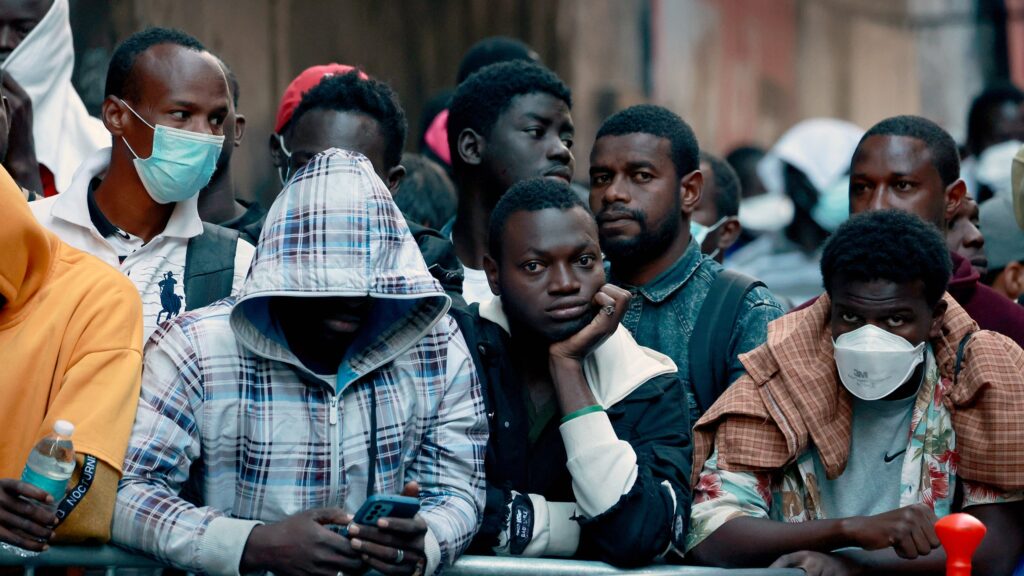A group of 27 illegal migrants were intercepted and stopped by the Libyan authorities in a deserted area south of the Jabal al Akhdar, in the eastern part of the country.
This was announced by Libya’s east branch of the Department to Combat Illegal Migration (DCIM), explaining that the 27 migrants arrested were of different nationalities. Among them, 10 Egyptians suffering from hepatitis were repatriated.
The flow of migrants crossing the Mediterranean Sea from east Libya has gradually declined in recent compared to the western part of the country.
The International Organization for Migration (IOM) reported that, so far in 2024, 1,078 migrants were intercepted and returned to Libya, including 952 men, 93 women and 33 children. According data from the IOM, the majority of migrants intercepted at sea were traveling from the west.
An IOM report released in April 2023, provided a profile of migrants in Libya and showed that, of the estimated 705,746 migrants living in Libya, over half of them live in the western part of the country.
Western Libya is also notably a stronghold for some of the most infamous human traffickers in the country. Abdel Rahman Milad, known as Bija, leads the regional coast guard for the north-western coastal town of Zawiya, which “is consistently linked with violence against migrants and other human smugglers,” according to the UN.
Despite been sanctioned by the Security Council since 2018, Milad has forged alliance with Tripoli-based governments, including the current one led by Abdul Hamid Dbeibeh.
A recent report by UN Panel of Experts, dated 15 September 2023, said Dbeibeh’s government has responded to its requests provide updated information on the effective implementation of the assets freeze and travel ban against Milad.
This month, Italian authorities opened an investigation against Milad and other accomplices for human trafficking, torture and other crimes against migrants.
For years, the European Union has provided logistical and technical support for Libyan coast guard despited repeated call by international non-governmental organization to end its aid due to the Libyan coast guard’s involvement in abuse against migrants.
“The EU and member countries have chosen to furnish money, vessels, training, and aerial surveillance to abusive Libyan armed groups so they can intercept and forcibly return people to Libya,” said Human Rights Watch in a statement last year.
“The EU should stop supporting abusive militias and instead establish safe and legal pathways for migration.”
